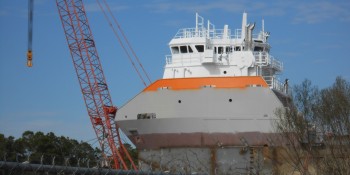Bayou La Batre Alabama: Seafood Capital of Alabama
Bayou La Batre Alabama
Bayou La Batre, Alabama is a fishing village with a seafood-processing harbor for fishing boats and shrimp boats. The local Chamber of Commerce has described the city as the “Seafood Capital of Alabama” for packaging seafood from hundreds of fishing boats.

Bayou La Batre was the first permanent settlement on the south Mobile County mainland and was founded in 1786, when French-born Joseph Bouzage (Bosarge) [1733-1795] was awarded a 1,259-acre Spanish land grant on the West Bank of the bayou. The modern City of Bayou La Batre was incorporated in 1955. Born in Poitiers, France, Joseph Bouzage came to the Gulf Coast circa 1760, married Catherine Louise Baudreau (Boudreau) on June 5, 1762, and was the father of seven children, including one son, Jean Baptiste.
Bayou La Batre was featured in the 1994 film Forrest Gump and the book upon which it is based. In April 2005, Disney Studios launched a secretly built pirate ship, the Black Pearl, out of Bayou La Batre for filming sequels to Pirates of the Caribbean: The Curse of the Black Pearl. Bayou La Batre’s seafood industry also serves as a centerpiece for the History channel’s reality documentary series Big Shrimpin’.
As part of the French settlement of the Gulf Coast, the bayou was originally called “Riviere D’Erbane” and acquired the present name from the French-maintained battery of artillery on the west bank (“bayou of the battery”).
